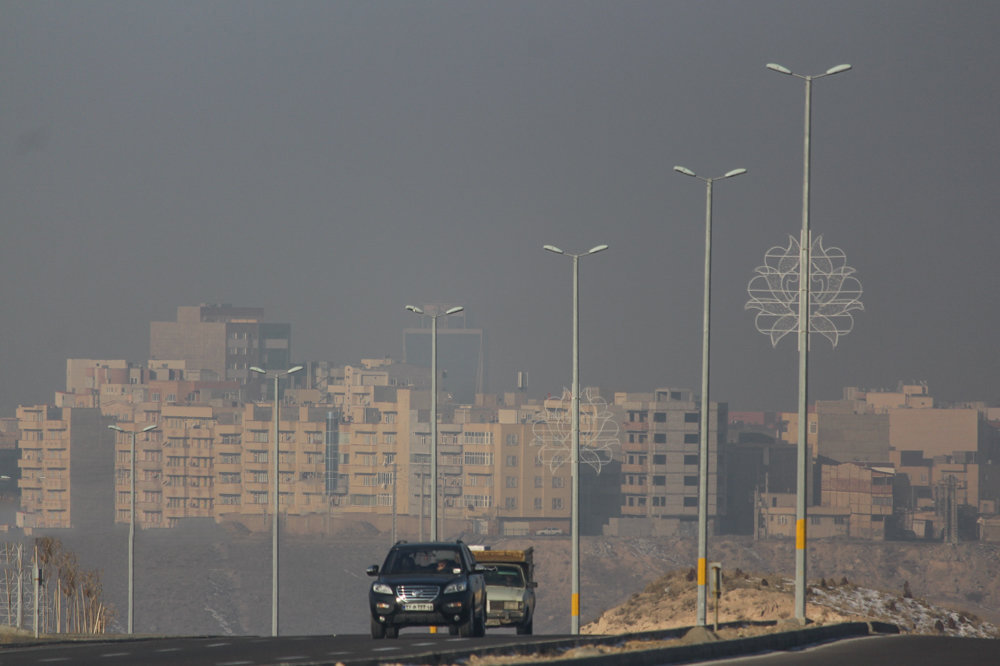Populist approaches won’t solve air pollution

Metropolises in Iran are grappling with air pollution. Sometimes air pollution in Tehran with about 10 million population reaches a dangerous toxic level.
There are many reasons for air pollution. Petrol-powered cars, especially those produced by local companies, are the main culprit.
Motorcycles also act like an open wound in this flawed chain of pollution with their emissions and noises. According to a new study that its findings were released recently, carbureted motorcycles in Tehran, which their numbers reach around 2 million, account for about 19 percent of air pollution in the capital.
Shahrbanou Amani, a Tehran city councilor, said on November 28 that “every 24 hours about 12 people lose their lives due to air pollution” in Tehran.
Mohammad-Reza Tabesh, chairman of the parliament environment and sustainable development group, said in an interview earlier this year that the annual cost of air pollution in Iran is about $20 billion.
Parents who send their children to school in the morning feel upset when they notice that their children should breathe toxic air. Not being able to do anything they may curse themselves for the situation in which their children are caught in. Even, some of these parents may be ready to donate money to the government if they become certain that it is spent for reducing air pollution.
Some steps have been taken to reduce air pollution. For example, the Tehran municipality has expanded metro and launched BRTs. Also, the government has greatly reduced tariffs for import of hybrid cars.
However, these moves are overshadowed by the number of ever-increasing petrol cars entering the streets and economic migrants pouring into big cities, especially Tehran.
Responsible bodies may say that they lack money to finance projects to reduce air pollution. But, if government and other bodies really care about citizens’ health they can find effective ways.
There are certain solutions though some of them may be painful and cause discontent among certain groups of people.
Many important green projects can be implemented in a matter of few years by levying green taxes on private cars in polluted cities, increasing petrol price, replacing petrol motorcycles with electric ones, developing efficient public transport system, putting old cars out of service, and setting fuel standards for car manufacturers.
There are other ways to combat air pollution. It can start with small steps such as encouraging citizens to use less energy to heat their homes to encouraging walking and cycling.
Using the experience of other countries is also ahead of us.
In the light of inaction on the part of successive governments, the local car companies have been taking advantage of the market to produce low quality cars. For example, the quality of cars produced in the country gradually starts decreasing both in terms of safety and fuel consumption.
This has taken place in the absence of effective competition and heavily subsidized petrol, which for its part has been draining the country’s resources and revenues for decades.
It is true that during the sanctions period the domestic auto companies were not able to transfer technology to the country to produce fuel efficient cars, but now that they have established cooperation with certain foreign auto companies it is not justified that they are allowed to continue producing fuel inefficient cars at the cost of citizens’ health and national resources.
The government must now force car companies to turn to producing green cars, especially electric cars. In the first look this may look hard to implement. According to a new research reported by the Guardian on December 1, electric cars are already cheaper to own and run than petrol or diesel cars in Britain, the U.S. and Japan. It said China is set to lead the market.
Surely, this can also prove true in Iran if the government stops populist policies by bringing the petrol prices to the market value and take other strict measures.
According to IRNA, Iran Khodro has started initial studies on hybrid and electric cars and Saipa plans to unveil its first electric car in coming months.
But since citizens in big cities, especially Tehran, are suffering from toxic air pollution and it will take a long time that car companies produce green cars, it is necessary that the government introduce an urgent plan by converting petrol cars into electric in polluted cities and establishing charging stations.
Writing an article on the IRNA website on November 8, Ali Tabesh, an educated businessperson, says while local car companies are seeking to work on hybrid cars, which is a complicated technology, citizens in Canada and the U.S. are easily converting their petrol cars into electric ones.
Some may say such steps are not easy in Iran whose people are addicted to subsidized petrol. But since a miracle is not going to happen, and due to global warming every passing year our country is seeing less and less rain and snowfall to clean our cities, it is necessary to take decisive and unpleasant actions to counter the great challenge of air pollution.
It is noteworthy that inaction and populist policies will only make the situation worse.
